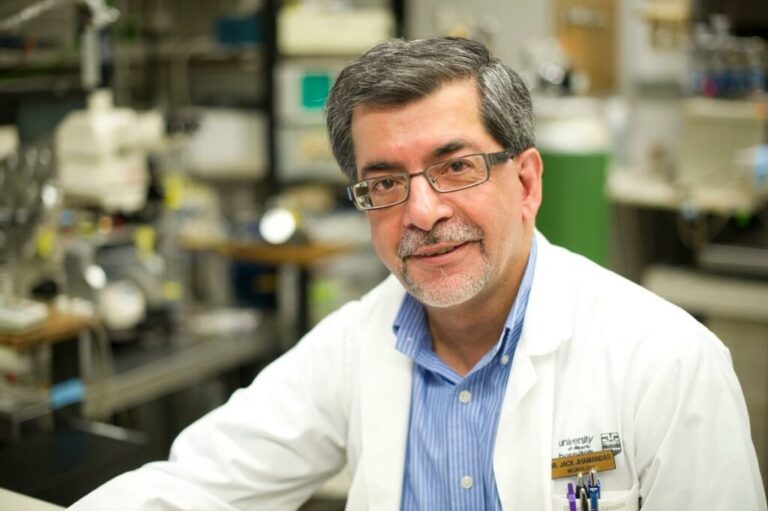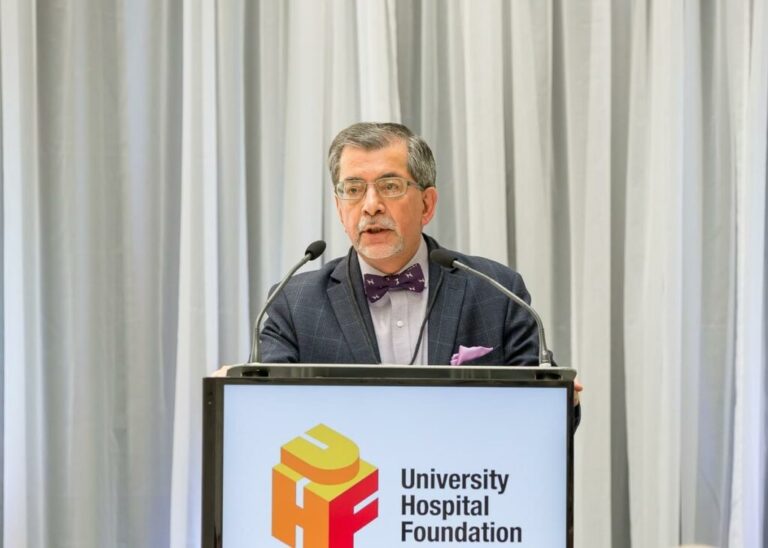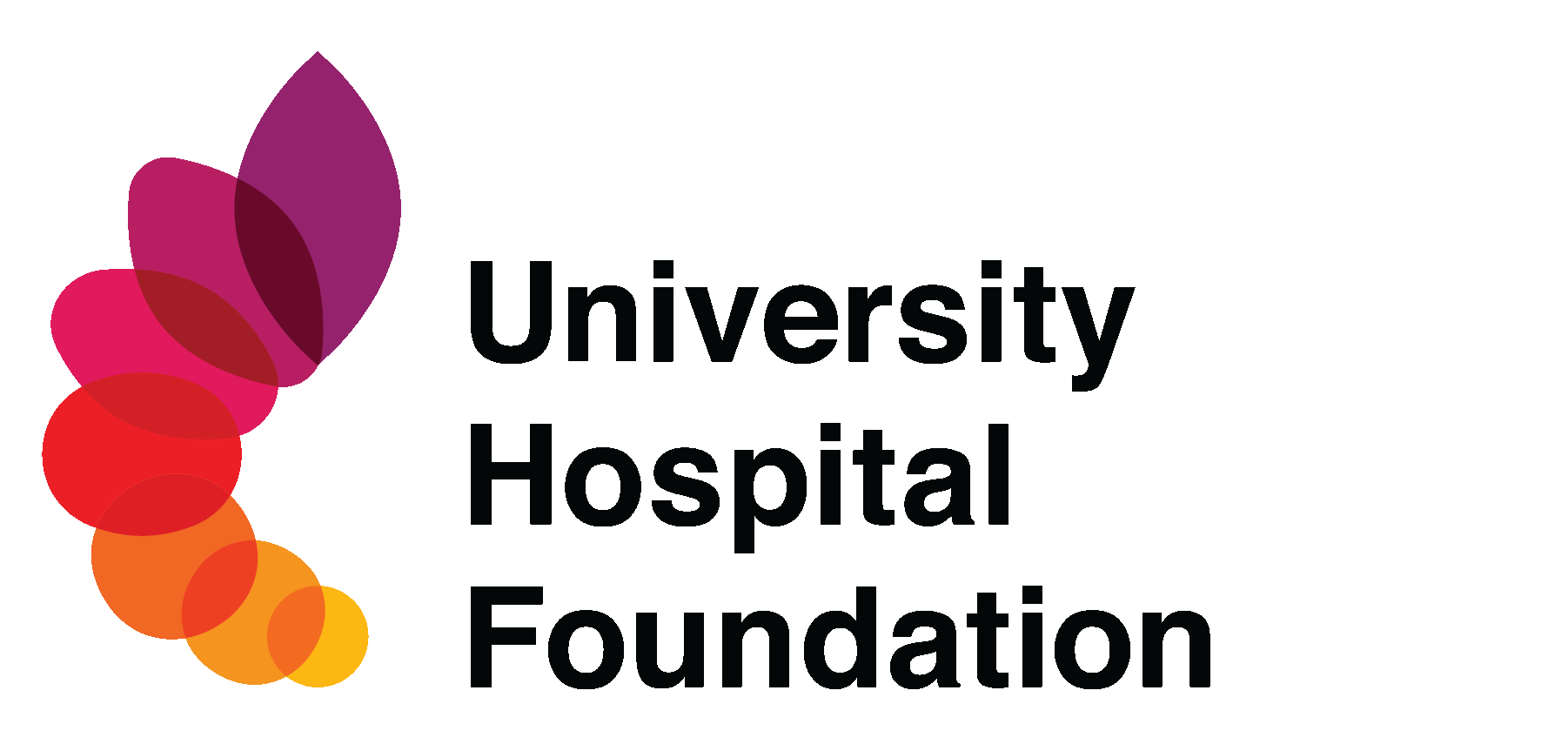- 1-833-448-3843 Make a call.
- info@givetouhf.ca Drop us an email.
- We are located in Edmonton, Alberta
Meet the Doc: Dr. Jack Jhamandas
 This month meet Dr. Jack Jhamandas, Distinguished University Professor, Division of Neurology, Department of Medicine, University of Alberta Hospital.
This month meet Dr. Jack Jhamandas, Distinguished University Professor, Division of Neurology, Department of Medicine, University of Alberta Hospital.
1. Where were you born/where are you from?
I was born in Mombasa, Kenya and spent my childhood there before going to the United Kingdom to complete my high school and eventually coming to Canada in 1970. I have done all my university, medical and subspecialty (Neurology) and research training in Canada.
2. When and how did you decide to become a doctor?
I never planned to become a medical doctor. Growing up, I wanted to be a nuclear physicist, but at university got interested in application of physics to biology (Biophysics) that eventually led to studying Medicine and Neurology. Serendipity and the influence of key mentors has played a large role in shaping my academic career.
Dr. Jack Jhamandas in his lab.
3. What led you to specialize in Neurology?
I was introduced to Neuroscience or the study of the brain in my early graduate studies and Neurology was thus a logical choice for a medical field that I chose to specialize in. I came back to do additional research training in Neuroscience, my first love, so that I could combine a career as a physician and a scientist. I consider the study of brain and neurological diseases one of the greatest mysteries and enduring challenges of our times.
 4. What do you do for fun?
4. What do you do for fun?
Life is pretty full when you have a career as a clinician-scientist but I read and spend as much time as I can with my family and friends.
5. What is your favourite local hangout?
I don’t have a “hangout” anymore but used to visit my close friend from undergraduate days and owner of Zenari’s at his restaurant downtown.
3. What led you to specialize in Neurology?
I was introduced to Neuroscience or the study of the brain in my early graduate studies and Neurology was thus a logical choice for a medical field that I chose to specialize in. I came back to do additional research training in Neuroscience, my first love, so that I could combine a career as a physician and a scientist. I consider the study of brain and neurological diseases one of the greatest mysteries and enduring challenges of our times.
